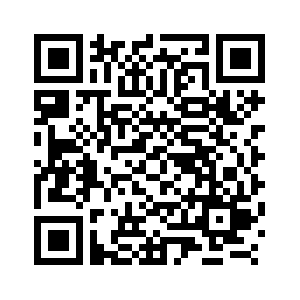BRUSSELS, Jan. 14 (Xinhua) -- The recent talks between Russia and the West to defuse their tensions have ended without any breakthrough, auguring potential tension escalations, while the North Atlantic Treaty Organization (NATO) even warned of the risk of a new military conflict in Europe.
The latest Russia-West engagements started with a Russia-U.S. meeting in Geneva on Monday, followed by negotiations between Russia and the Organization for Security and Cooperation in Europe (OSCE) in Vienna on Wednesday, and then a NATO-Russia Council meeting in Brussels on Thursday.
Pessimistic sentiments prevail after the three rounds of fruitless talks, as gaps on fundamental issues remain "unbridgeable."
EXPANSION VS "AGGRESSION"
Efforts have failed, NATO Secretary General Jens Stoltenberg said after the talks ended. The NATO chief has, on several occasions in a week, warned Russia about the "high political and economic price" of any possible new aggression against Ukraine.
Russia has repeatedly accused the West of threatening its security by expanding NATO eastwards and deploying weapons systems near its borders.
"Negotiations were initiated in order to get specific answers to specific fundamental questions raised. It is on these fundamental issues that disagreements have been recorded," the RIA Novosti news agency quoted Kremlin Spokesman Dmitry Peskov as saying.
Analysts believe that Russia is willing to establish a longer-term security cooperation framework with Western countries led by the United States, while America has failed to respond to Russia's security concerns.
After the talks, Russian Deputy Foreign Minister Sergei Ryabkov, who headed the Russian delegation in talks with the United States in Geneva on Monday, said that the main questions were "still up in the air, and we don't see an understanding from the American side of the necessity of a decision in a way that satisfies us."
"We do not trust the other side," he noted. "We need ironclad, waterproof, bulletproof, legally binding guarantees -- not assurances, not safeguards."
Ryabkov stressed that Russia has no plans to attack Ukraine, and there was no reason to fear an escalation of tensions with Ukraine.
"Certain threats or warnings were put forward, we explained to our colleagues that we have no plans to attack Ukraine," Ryabkov said. "There is no basis for fearing any escalated scenario in this regard."
Russia's military build-up against Ukraine features "tens of thousands of combat-ready troops, tanks, artillery, armored units, drones, a lot of electronic warfare systems," said NATO.
Russia is seeking guarantees of NATO's non-expansion, particularly in Central and Eastern Europe, but NATO is not happy to see Russia's interference with NATO's expansion plans.
"No one else has the right to try to veto or interfere in that process. And this is about fundamental principles for European security. It's about the right for every nation to choose their own path," Stoltenberg said at a press conference with Estonian President Alar Karis this week.
RUSSIA WANTS QUICK RESULTS
In a recent interview with German radio Deutschlandfunk, Stefan Meister, an expert on Russia at the German Council on Foreign Relations, said that he had low expectations of the efforts underway to defuse the situation because Russia put forward a maximum requirement as the basis for negotiations, which cannot be met by either the United States or NATO.
"I would say it is rather their process, which has started and that is perhaps the chance that NATO and Russia start the process again to talk about European security, arms control and all these issues," said Meister.
Meister believed that Russia is a good negotiator. Russia went first with maximum demands in the first round, and then it can still move away from it.
However, Michel Collon, a Belgian writer of several books on NATO, maintained Russia's demands were "very reasonable."
"What would Washington say if you had Russian troops at the border of Canada or Mexico? They would say it's a provocation," Collon told Xinhua.
Volodymyr Ishchenko, a research associate at the Institute of East European Studies at the Free University of Berlin, said in an article that a correlation between support for NATO and different visions of Ukraine's national identity makes the issue especially divisive.
Many Ukrainians see NATO as a shield against Russia, while others feel that a NATO membership would surrender more of Ukraine's sovereignty to the West, which they feel has been happening since 2014, and, at the same time, would increase tensions with Russia, escalate internal tensions among Ukrainians, and drag the nation in one of the United States' "forever" wars, said Ishchenko.
After a week of talks, the related sides were not any closer than they were before. Further talks are not currently planned. Moscow has reiterated that it is not interested in protracted discussions but wants quick results.
Foreign policy expert Fyodor Lukyanov, who is close to the Kremlin, told Russia's state newspaper Rossiyskaya Gazeta that the differences are "apparently irreconcilable" and that a "new and rather dangerous escalation would be needed or could occur," in order "to force" the parties to new forms of agreement.
However, Lukyanov noted that it is still unclear what exactly will happen. ■



